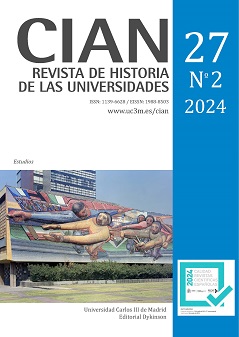The common good as a university promise. The Dominican case in Chile during the first part of the 17th Century
Abstract
The purpose of the following article is to reflect on and analyze a concept-idea, the common good, which seems to be a contemporary one and which has gained strength in the present from the point of view of equality and equity. However, when its conceptual trajectory for the Chilean case is studied, specifically that referring to the scope of the creation of the first university founded in Chile (17th century), it can already be observed that the use of the common good was related to geographical issues, economic, educational, social and even legal, which were intended to be a benefit to the neighbors and residents of the time. For this reason, this study focuses on understanding and analyzing, from an interdisciplinary perspective, on the one hand, conceptual history and, on the other, interpretive systemics, in order through this dialogue to deliver the first outlines of how it was understood and what sustained the idea of common good and what was the purpose that the Dominicans had to argue with this concept the foundation of permission of the university under the principles declared by means of the common good.
Downloads
Copyright (c) 2024 Instituto Figuerola de Historia y Ciencias Sociales

This work is licensed under a Creative Commons Attribution-NonCommercial-NoDerivatives 4.0 International License.




